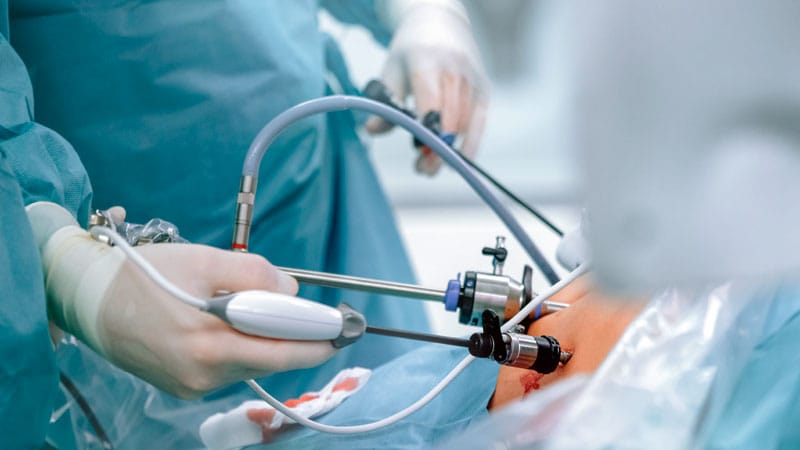Weight loss achieved through bariatric surgery lowered the risk of major adverse cardiovascular events (MACE) by 42% and all-cause mortality by 37% in people who were obese and had moderate-to-severe obstructive sleep apnea (OSA) compared with patients who didn’t have the surgery, according to results from the retrospective MOSAIC study.
This study is important “because it targets the main driver” of OSA, which is obesity and fat accumulation, Ali Aminian, MD, of the Cleveland Clinic, told Medscape Medical News. The results were published online June 21 in the Journal of the American College of Cardiology.
Although OSA is a common condition, affecting close to 1 billion people worldwide, it’s also a field where clinicians have lacked robust data to drive treatment decisions, Aminian noted.
Widely used positive airway pressure (PAP) treatments provide symptom relief but have not been shown to provide larger health benefits. For example, PAP treatments have failed in randomized clinical trials to deliver benefits in MACE for patients with OSA, Aminian and coauthors say. In addition, there are currently no approved pharmacologic therapies for OSA, the authors say.
To understand the potential benefit of bariatric surgery for people with sleep apnea, Aminian and colleagues conducted a retrospective cohort study of adult patients with obesity and a moderate-to-severe form of sleep apnea who had been seen within the Cleveland Clinic Health System between 2004 and 2018.
The observational study included 13,657 adults with a body mass index (BMI) of 35-70 kg/m2 and the presence of moderate-to-severe obstructive sleep apnea. Researchers looked at data for 970 patients who underwent bariatric surgery and 12,687 patients who were treated other ways. Follow-up ended in September 2022.
To minimize the effects of confounding factors, researchers used overlap weighting — a propensity-score method that attempts to mimic attributes of randomized clinical trials — and outcome regression to compare outcomes in surgical and nonsurgical groups.
Study investigators found the cumulative incidence of MACE at 10 years was 27% in the bariatric surgery group and 35.6% in the nonsurgical group (adjusted hazard ratio [HR], 0.58; P
>>> Read full article>>>
Copyright for syndicated content belongs to the linked Source : Medscape – https://www.medscape.com/viewarticle/bariatric-surgery-lowers-risk-mace-patients-moderate-severe-2024a1000bm2
